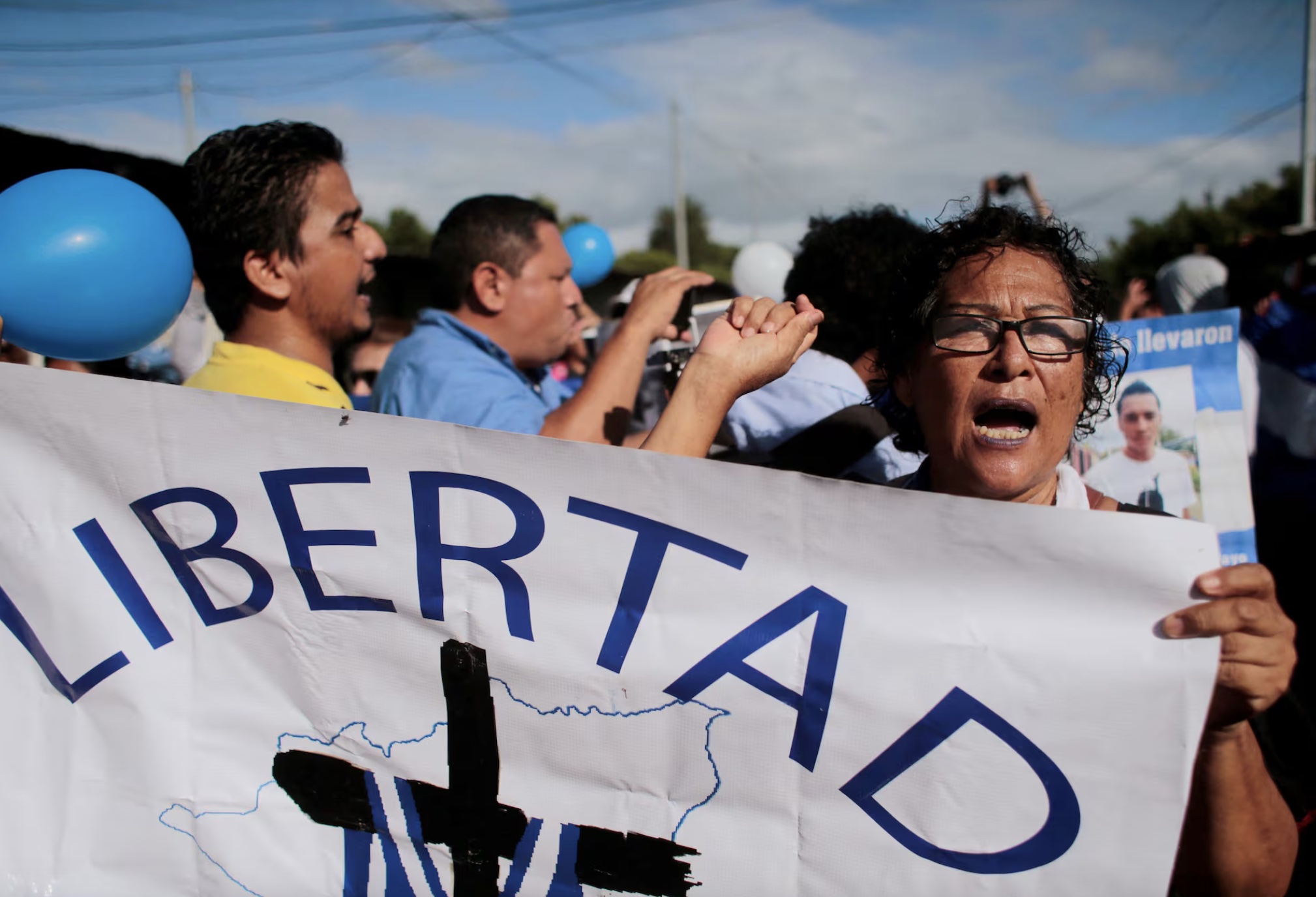The men held by the Australian government in offshore processing centers and temporary transit centers in Papua New Guinea and Nauru are not afforded adequate healthcare. The asylum seekers in these centers are not offered proper access to medical attention generally and especially in cases requiring immediate attention, should be transferred to Australia’s mainland for treatment. The situation has led to an “acute medical crisis” where poor health and suicidal ideations are common place and where “people needing urgent medical assistance have severely deteriorated or even died as a result of delays.”[1] According to the Refugee Council of Australia, doctors and others who have worked with the asylum seekers have repeatedly reported that “what is happening in Nauru and Manus Island is worse than anything they have ever seen—worse than in conflict zones, worse than in refugee camps across the world, worse than anything they have come across in years of professional practice as counselors and psychiatrists.”[2] According to a report from The Guardian, some asylum seekers and refugees have been waiting “as long as five years for specialist medical treatment even when it has been formally recommended by the Australian government’s contracted doctors.”[3] In response to the lack of the provision of care, Doctors Without Borders launched a “telehealth service” to resume treatment of patients after the Nauruan government forced it to leave last year.[4]
The Refugee Council of Australia explains that the Australian government’s treatment of refugees and asylum seekers held in the offshore processing centers could be considered to amount to “cruel, inhuman or degrading treatment,” which is explicitly prohibited under international human rights treaties which Australia has ratified.[5] Furthermore, the UN Committee Against Torture has “suggested that the ‘combination of the harsh conditions, the protracted periods of closed detention and the uncertainty about the future reportedly creates serious physical and mental pain and suffering’ may together amount to cruel, inhuman or degrading treatment.”[6] In February 2019, the Australian Parliament passed legislation to address the crisis and give asylum seekers on Nauru and Manus the right to medical treatment and transportation to Australia for care.[7] The “Medevac” Bill is limited to those still on the islands and is meant to give doctors more power to recommend transfers of sick asylum seekers. The bill seeks to “legislate expedited medical evacuations for refugees and asylum seekers to Australia with the recommendation of two doctors, and without government interference except in cases of national security.”[8] The bill is necessary to provide better healthcare on both Nauru and Manus Island where Doctors Without Borders reported in December 2018 that 124 out of 208 people it had treated had suicidal thoughts and 63 people had attempted suicide.[9] Although doctors have been trying to treat the people held on the islands, the Australian government has repeatedly blocked access to medical care, leading some to question whether the Australian government believes that a group of people under [Doctors for Refugee’s] custody are less deserving of medical care than others.[10] The bill requires a panel to make decisions regarding transfers of patients which will be made up of the commonwealth chief medical officer, the home affairs department’s chief medical officer, and at least six others, who will serve voluntarily to avoid constitutional issues.[11] The new medical procedures only apply to those asylum seekers still on the island, the specific number of which is unclear but between 900 and 1200 men, not to any new arrivals.[12] Unfortunately, these transfers do not mean that the asylum seekers and refugees will escape detention unless the Prime Minister decides it is no longer necessary.[13] Thus, the Medevac Bill codifies the ways which asylum seekers and refugees can be medically transferred to Australia and makes doctors more influential in decisions of duty of care.
Immediately after the bill’s passage, Prime Minister Scott Morrison announced that his government would reopen the detention center on Christmas Island, which is an Australian territory, and send sick refugees there for treatment instead of allowing them to enter the Australian mainland.[14] The Prime Minister said he expected that the new medical evacuation procedures would renew the people-smuggling trade and Australia would need to strengthen its national security efforts.[15] The authorities on Christmas Island criticized the Prime Minister’s plans arguing that “the islands’ medical services were ill-equipped to deal with refuges sent there in poor health” and that they do not have the “capacity [there] to deal with people [going there] for medical reasons, both physically and mentally.”[16] Al Jazeera reported in March 2019 that asylum seekers would be sent to a “prison-like facility” for medical treatment on Christmas Island.[17] Furthermore, Christmas Island authorities said the island “does not have the facilities for complex medical care. The Australian Broadcasting Corporation (ABC News) recently reported that for the past 20 years no baby is believed to have been born on the island—every pregnant mother is instead sent to the mainland for the birth.”[18] It seems that if the island is not equipped to provide medical services for its residents, asylum seekers should not be subject to continued inadequate care there instead of receiving proper attention in Australia. Although the Medevac legislation has been in place for about two months, only one person is believed to have been transferred to Australia under its rules.[19] Although over 150 staff have been sent to the center on Christmas Island, no person from the other processing centers have been sent there, leading the federal government to disclose its intent to close the center by July, after spending $185 million re-opening it.[20] The Australian government expects to repeal the Medevac law and thus terminate its need for the center on Christmas Island.[21] Thus, it appears that the passing of the law has not made any positive change for asylum seekers and refugees being held by the Australian government.
Two new laws passed in Nauru pose an additional impediment to the access of proper medical care by asylum seekers. One of the laws requires that all overseas medical transfers be approved by a new committee and Nauru’s Health Minister.[22] The law “explicitly bans transfers where the patient seeks assessment from an overseas-based doctor during the process.”[23] Under the new rules, “all transfers from Nauru for treatment must go through its own Overseas Medical Referrals Compliance Committee; a Nauru-based health-provider must believe ‘additional expertise or differently resourced facility are required. Referrals are blocked if they follow ‘the recommendation of an overseas health practitioner [using] telemedicine examination or diagnosis.”[24] The Nauruan government passed another piece of legislation that directly affects asylum seekers’ access to medical care. This law bans telemedicine for all residents of Nauru, except for those permitted by the cabinet.[25] This makes it more difficult for doctors in Australia to be able to diagnose or consult with patients. It will also be more difficult to get transfers if Australian doctors are required to wait for Nauruan doctors to agree with their decision. The passage of both laws appears to be a reaction to Doctors Without Borders launching a “telehealth service” for previous patients on the island, whose medical care was ended when the organization was forced off the island last year.
Although the passage of the Medevac Bill was widely celebrated, several impediments to its implementation seem to signal that medical access for the men still held by the Australian government on the islands will not improve. The asylum seekers and refugees who remain detained on Nauru and Manus Island are protected by human rights treaties and should be provided the protection to which they are entitled. As this situation continues, more and more people on the islands will continue to suffer psychological damage, emotional instability, and inadequate treatment. The government of Australia must realize its duty of care to the asylum seekers in its custody and ensure their rights are fully established.
- Tamra Sami, “Australia Confronts Its ‘Pacific Solution,’” in US News, available at https://www.usnews.com/news/best-countries/articles/2019-03-06/australias-asylum-seeking-policies-take-center-stage-in-upcoming-national-election (March 2019). ↑
- Refugee Council of Australia, “Medevac Bill: Frequently asked questions,” available at https://www.refugeecouncil.org.au/medevac-bill-faq/ (March 2019). ↑
- Helen Davidson, “Australian government ignored refugee transfer advice from its own doctors for up to five years,” in The Guardian, (Feb. 2019). ↑
- Id. ↑
- Refugee Council of Australia, supra note 2. ↑
- Id. ↑
- Sami, supra note 1. ↑
- Davidson, supra note 3. ↑
- Refugee Council of Australia, supra note 2. ↑
- Davidson, supra note 3. ↑
- Katherine Murphy, “Nine facts about the medical evacuation bill,” in The Guardian, (Feb. 2019). ↑
- Id. ↑
- Id. ↑
- Sami, supra note 1. ↑
- Brett Worthington, “Senate passes controversial refugee evacuation bill, Scott Morrison says new laws ‘weaken our borders,’” in ABC News, (Feb. 2019). ↑
- Id. ↑
- “Australia to send asylum seekers to remote island for treatment,” in Al Jazeera (March 2019). ↑
- Helen Davidson, “The medevac bill is law: what does that mean for ailing offshore refuges?” in The Guardian, (March 2019). ↑
- Helen Davidson, “Coalition uses budget to announce it will close Christmas Island center—after spending $185m,” in The Guardian (April 2019). ↑
- Helen Davidson, “Christmas Island: more than 150 staff are guarding zero detainees, senators told,” in The Guardian (April 2019); Davidson, “Coalition uses budget to announce it will close Christmas Island center—after spending $185m,” The Guardian. ↑
- Davidson, supra note 19. ↑
- Dan Conifer, et al, “Australia’s medical evacuation process for asylum seekers in immigration detention could be undermined by new Nauru law,” in ABC News, (Feb. 2019). ↑
- Id. ↑
- Id. ↑
- Davidson, supra note 18. ↑


